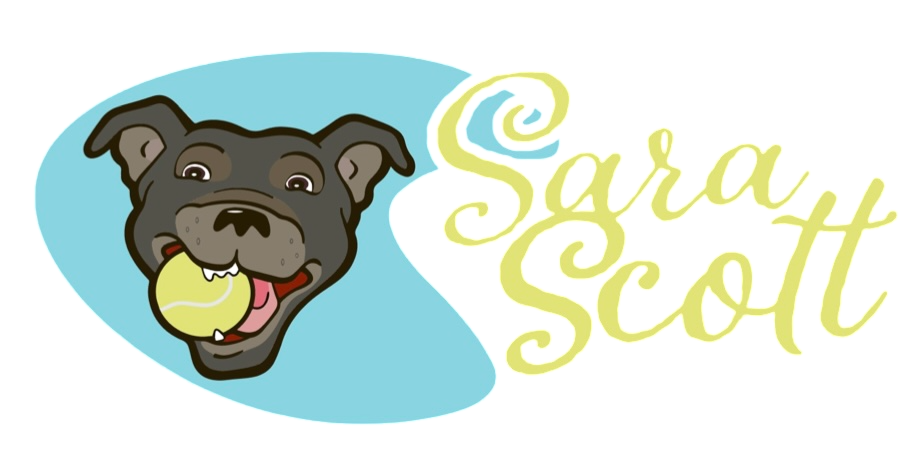When Your Dog Becomes Your Mirror: A Thanksgiving Reflection
- Sara Scott

- Nov 19, 2025
- 3 min read
I've been a dog trainer for 25 years, and I can usually spot a behavior problem from a mile away. What took me much longer to recognize? The ways my own unresolved stuff was showing up in how I work and how dramatically things shifted once I started doing my own attachment work.
This realization hit me hardest recently while watching Chester and Fernando—my two rescue dogs—completely relaxed and sprawled across my couch. Both came to me as strays I found on the street. Both needed someone to help them feel safe. And both, I've come to realize, have taught me as much about healing as any therapy session or training workshop ever did.
The Thing Nobody Talks About
We talk a lot in the dog training world about consistency, clear communication, and reading body language. We talk about building trust and creating safety. But we don't talk nearly enough about how hard it is to offer those things to a dog when you're still figuring out how to experience them yourself.
Attachment theory—the psychological framework that explains how our early relationships shape how we connect throughout life—doesn't just apply to humans. It shows up in every relationship we have, including with our dogs. And here's the uncomfortable truth: if you're struggling with anxious or avoidant attachment patterns in your human relationships, those same patterns are probably affecting your dog.
What Changed Everything
The shift didn't come from learning more about dogs. It came from doing my own work on attachment—learning what secure, healthy relationships actually feel like with people. And as that work progressed, something fascinating happened: my relationships with dogs transformed too.
I wrote about this recently for Bay Woof Magazine, exploring the connections between gratitude, attachment healing, and what our dogs actually need from us. The piece digs into how attachment theory works, why we heal in relationship with others, and how that healing ripples out to affect every connection we have—including the ones with our dogs.
Because here's what I've learned: our dogs don't need us to be perfect. They need us to be present, regulated, and capable of repair when things go sideways. And those capacities? Those same capacities are the foundation of secure attachment in all our relationships—human and canine alike.
This Thanksgiving, I'm Grateful For...
The people who showed me what secure attachment looks like. The therapy that helped me rewire old patterns. The opportunities to practice showing up differently in relationships. And yes, for Chester and Fernando, who remind me every single day that I'm capable of being someone's safe person—that love doesn't have to be complicated when we're not carrying so much fear into it.
If you've ever wondered why your dog seems more anxious when you're stressed, or why training techniques that work for others don't seem to work for you, or why your relationship with your dog feels harder than it should—this might be worth exploring.
Read my full Bay Woof article here to learn more about how attachment theory shows up in our relationships with dogs, and why healing yourself might be the most important thing you can do for your dog.
Ready to Build Your Dog's Confidence Through Play?
Does your dog struggle with fear, uncertainty, or lack of confidence navigating the world? Game of Bones is a four-week interactive training program designed to boost your dog's skills in confidence, exploration, and adaptability through engaging mini-games. This isn't a "watch and learn later" course—it's a real-time training adventure where you and your dog level up together. Each session includes timer videos to keep you on track as you practice immediately with your pup. Over my 25 years working with dogs, I've seen how all dogs—puppies, seniors, anxious, reactive—benefit from navigating their environment with confidence. Game of Bones gives you the complete playbook to make it happen.
Want More Insights on Dog Behavior?
Sign up for my email newsletter and get expert dog training advice delivered straight to your inbox. No fluff, no spam—just practical insights from 25+ years of working with dogs on behavior challenges, reactivity, anxiety, and building stronger relationships. Join thousands of dog owners who are getting the tools they need to understand and support their dogs better.




Comments